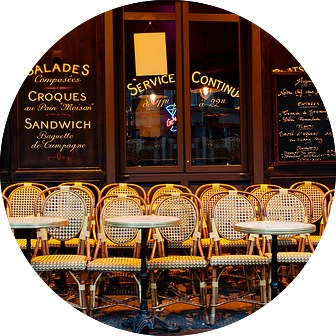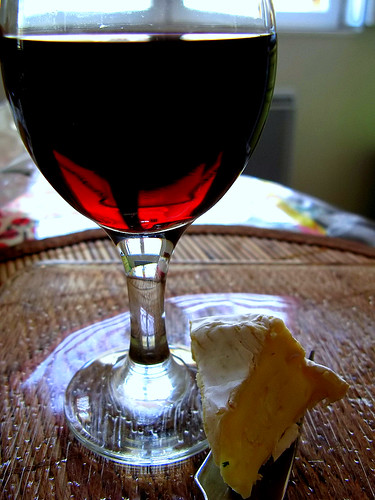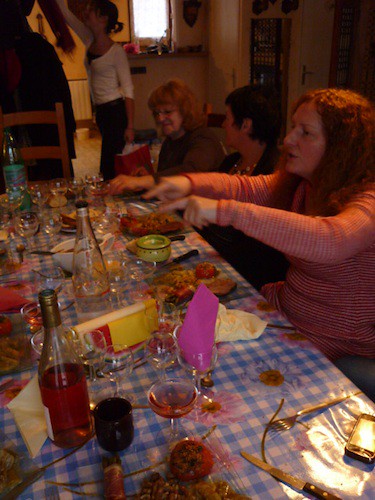Eating in France is more than an art, it is a means to an end
 It is often said that the French have excellent table manners, but that’s only half the story. The other half is that the majority of ordinary French people are rather undisciplined and even sloppy at table by some Anglo-Saxon standards. But that, ironically, is one of the things I appreciate most about not only eating in France, but about the French themselves and living in France in general.
It is often said that the French have excellent table manners, but that’s only half the story. The other half is that the majority of ordinary French people are rather undisciplined and even sloppy at table by some Anglo-Saxon standards. But that, ironically, is one of the things I appreciate most about not only eating in France, but about the French themselves and living in France in general.
My French friends come from all kinds of backgrounds and they work in all kinds of fields; there are university professors, waiters and waitresses, theatre management personnel, agricultural workers, civil servants, a couple of politicians, salespeople, gendarmes, business owners, and more.
In other words, they are just ordinary people, like most of us.
But despite their different backgrounds, they all know how to eat ‘correctly’ in restaurants if called upon to do so by the occasion. That said, and much more importantly, they also know that everyday eating with friends and family is a much more pleasurable experience because they can throw the rule book out of the window.

That means you may start hearing things like ‘Shall we just bring the bowl in and we all serve ourselves’, or, whilst holding their glass in the air and, turning to the guest, next to whom is the wine, say ‘can you serve me a bit of wine?’
This is a surefire sign that you are liked
So grab it with both hands, because if you do, you know that from here on things are going to become more informal and relaxed. Which means that the next escalation in the effort to burn the rule book may well be you saying ‘I’ll give you a hand clearing the plates’. You’ll hear the obligatory ‘no no, you’re the guest’, of course, but you know that when you begin to get on well with your hosts you can just help clear the table before the dessert anyway, and they’ll say nothing, but appreciate it. Not for the work, but because your relationship is developing.
Then you will start smelling the bread from very close up to weigh up its quality. Cheese plates? What are they? You mop up a corner of your plate and put your cheese there. Cheese, moreover, which isn’t even displayed on a pretty plate any more but wrapped in the paper it was in when you bought it at the market.
Finally, you will put your elbows on the table
You will say ‘sure’ to the person who wants to pinch a spoonful of your Chantilly, and you will help yourself to seconds without asking. Someone may even burp inadvertently and you will all laugh.
And during all this time your conversation is becoming more relaxed.
There will be more laughs and stories about the past, more real truths, politics, religion, the neighbours, and life in general.

In other words, don’t believe the travel articles or the myths. Living in France for real means understanding the real reason for eating with others, which is to develop relationships, not show off one’s etiquette prowess. And understanding that means that you may even end up becoming a bona-fide accepted and incorporated member of French society.
I have often read that l’art de la table is important to the French. It is, but there’s more.
Dig deeper and you’ll find that l’art de la table is, at the end of the day, no more than a means to an end. It is an essential component of the much more subtle art of developing human relationships as well as France’s most precious asset, l’art de vivre.
Have you found eating in France to be different from eating anywhere else?
Image credits1. © Judy MacMahon
2. Françoise Fougères via Flickr
3. © Michael Cosgrove






